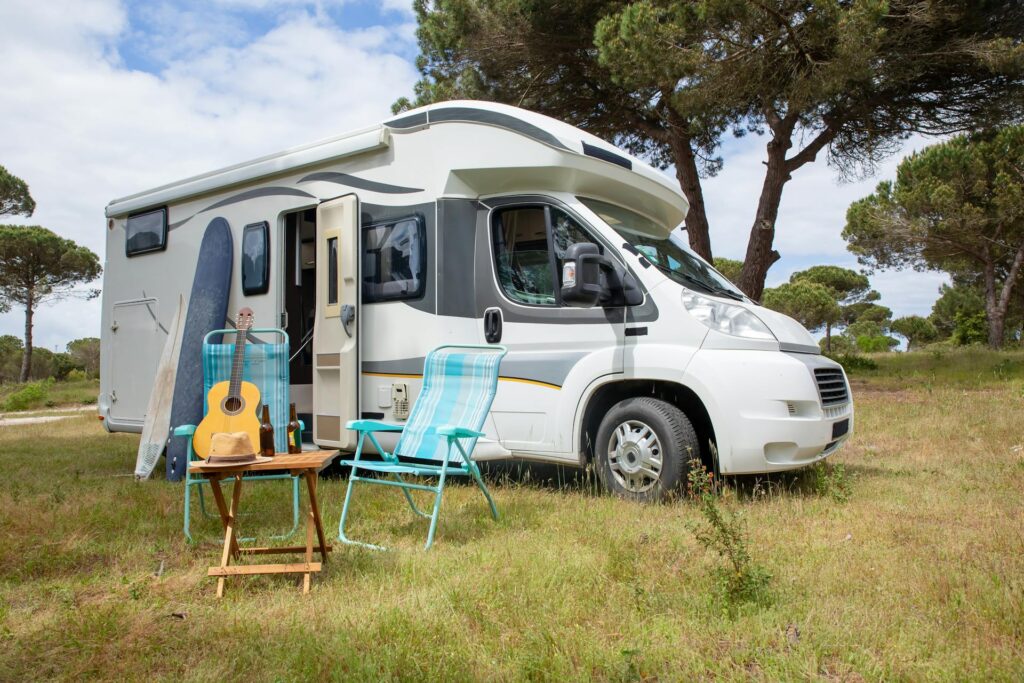Finding the Best RV Warranty

Choosing the best RV warranty hinges on more than just price; it’s about coverage, reliability, and peace of mind when you hit the road. This article provides clarity by evaluating key players in the RV warranty space and what makes each provider’s coverage advantageous. Discover succinct comparisons and insights to guide your decision on the optimal warranty for your recreational vehicle, without unnecessary jargon.
Finding the Best RV Warranty: Your Comprehensive Coverage Guide
RV extended warranties provide financial protection against mechanical breakdowns, offering coverage for repairs and replacements as well as assistance with roadside emergencies, going beyond what manufacturer warranties typically cover.
Leading RV warranty providers, including America’s RV Warranty, Good Sam Extended Service Plan, and Wholesale Warranties, offer unique plans, flexibility, and customer service, with varying coverage options to fit different RV owner needs.
Understanding the types of RV warranties (exclusionary vs. named-component), costs, and additional considerations such as transferability, mobile mechanic service fees, and claims processes is critical for choosing the right warranty plan for your situation.
Decoding RV Extended Warranty Coverage

An RV extended warranty, or a vehicle service contract, is not just another expense; it’s an investment in peace of mind for every journey you undertake. With RV extended service contracts, you get:
- Financial protection against mechanical breakdowns
- A safety blanket often absent in standard manufacturer warranties
- Coverage for repairs and replacements
- Assistance with roadside emergencies
- Peace of mind knowing that you’re protected
With time or mileage limitations, manufacturer warranties may sometimes leave RV owners in a bind. An extended warranty ensures that you’re covered for unexpected repairs and can continue to enjoy your RV without worrying about costly breakdowns.
Unlike RV insurance policies that primarily cover damages from accidents and environmental factors, mechanical breakdown insurance coverage and RV extended warranties come to the rescue when your vehicle experiences mechanical failures. As a result, many RV owners are now seeing the value of extended warranties, safeguarding their budgets from unexpected repair costs related to mechanical failures.
Evaluating Top RV Warranty Providers

Choosing the right RV warranty company is a balancing act between your budget constraints and specific coverage needs. Top RV warranty providers such as America’s RV Warranty, Good Sam Extended Service Plan, and Wholesale Warranties offer unique coverage options, superior customer service, and reliability that instills confidence in their services.
America’s RV Warranty
America’s RV Warranty (ARW) goes beyond usual expectations by providing full protection against malfunctions and breakdowns, covering all the major items on an RV. Unique features in ARW’s warranty plans differentiate it from other warranty companies, thereby enhancing value for RV owners.
Flexibility is a key component of ARW’s plans. The warranty coverage can be utilized at any licensed repair facility or with mobile mechanics across the USA and Canada, providing significant flexibility for repairs. Plus, ARW simplifies the process of acquiring warranty plans by not requiring an inspection prior to coverage, making it a breeze for RV owners.
Good Sam Extended Service Plan
Good Sam Extended Service Plan stands out by:
- Operating under a regulated insurance model
- Offering a distinctive alternative to traditional RV warranties while covering mechanical failures with extended service plans
- Allowing for any service center across the U.S. and Canada to conduct repairs, providing greater flexibility than warranties that limit service locations.
The Good Sam Extended Service Plan offers the following benefits:
- Monthly payments, easing the financial burden
- Comprehensive coverage for all major RV components throughout the policy duration
- Ability to transfer coverage to new owners at no extra cost, increasing the resale value of the RV.
Moreover, it comes with travel benefits offering reimbursements for expenses like food, lodging, and rental car costs during RV repairs.
Wholesale Warranties
Wholesale Warranties offers three distinct extended warranty options, catering to a variety of needs with deductibles applied per visit. Customers have the opportunity to customize their extended warranty coverage with various add-on options, ensuring a tailored approach to their unique needs.
Alongside customizable coverage, Wholesale Warranties includes essential additional services such as roadside assistance and coverage for tires and wheels. The company’s focus on customer-oriented services is evident in their adept internal claims department, ensuring smooth transactions and a hassle-free experience.
Understanding Different Types of RV Warranties

Understanding your RV warranty is the first step towards making an informed decision. RV warranties can be broadly categorized into two types: exclusionary coverage, providing broad coverage with only a few listed exclusions, and named-component coverage, specifying the parts that are covered. Companies like RVing Solutions offer both these types of policies for RVs and UTVs, giving owners a choice.
Exclusionary contracts offer more comprehensive coverage compared to inclusionary contracts and are accordingly priced higher. However, the security of an RV warranty plan is bolstered when backed by A-rated insurance providers, as they ensure coverage is maintained even if the warranty company faces issues fulfilling its obligations. Understanding these differences can help you choose the right warranty for your vehicle.
The Financial Aspect: RV Warranty Costs vs Benefits

The cost of an RV extended warranty is affected by several factors, such as:
- The type of recreational vehicle
- The make, model, year, and mileage
- Level of coverage
- Length of coverage
- How the RV is utilized
As motorhomes have integrated automotive components, extended warranty plans are typically more costly for them compared to towable RVs.
Other factors influencing warranty costs include:
- The RV’s age
- Level of coverage
- The choice of warranty provider
- The term of the coverage
Inclusive contracts are generally less expensive than exclusionary contracts, and contracts for new RVs are often cheaper than those for older models. However, extended warranties can alleviate the economic impact of mechanical breakdowns, covering the majority of repair expenses after the deductible, providing substantial cost savings on otherwise costly repairs over time.
While the costs can range from a few thousand dollars for basic plans for smaller RVs to approximately $20,000 for comprehensive coverage for high mileage, luxury motorhomes, it’s important for RV owners to understand the warranty’s deductibles, premiums, and the costs when filing a claim. This can aid in making sound financial choices. However, some RV owners are skeptical about the value of extended warranties, citing high costs and challenges in finding service providers who accept them.
Finding Your Fit: Selecting the Right Warranty Plan
Choosing the right RV extended warranty plan requires consideration of the vehicle type, such as motorhomes, travel trailers, or 5th wheels, as coverage may vary accordingly. It’s essential to ensure that the extended warranty covers key components like slideouts, which can be expensive to repair, especially given the specifics of your RV’s equipment.
Additionally, pricing of RV extended warranties can be influenced by various factors, including the RV’s features, age, and how often it is used. Longer warranty plans can lead to lower annual rates and subsequent financial savings, particularly for new RV units.
The flexibility of purchasing an extended warranty either at the time of buying the RV or at any later stage offers an added advantage for RV owners.
Additional Considerations When Choosing an RV Warranty
When choosing an RV warranty, there are additional considerations beyond just cost and coverage. For instance, Good Sam’s Extended Service Plan can be transferred to a new owner at no cost, making it a desirable feature that can boost the RV’s value and provide peace of mind for the buyer if the RV is sold.
Mobile mechanic service fees in an RV warranty are intended to cover travel expenses, which is another factor to consider. America’s RV Warranty, for example, now accepts repairs by mobile RV mechanics regardless of whether the vehicle is disabled, ensuring convenience and broad coverage.
Navigating Claims and Repairs with Your RV Warranty

Navigating the claims and repairs process with an RV warranty can sometimes seem like a daunting task. However, warranty providers often have a streamlined process for repair approval, employing standard costs and labor hours to prevent overcharging. Additionally, service centers work in coordination with warranty providers to obtain approval and process payment for repairs that are covered.
Customers are generally required to pay a deductible per service visit for warranty repairs, rather than for each individual repair issue, which can also lead to out-of-pocket expenses in some cases such as extensive labor. Therefore, regular maintenance and timely attending to repairs are critical in preventing exorbitant repairs that may fall outside the warranty coverage.
The Fine Print: What to Watch Out For
When considering an RV warranty, it’s essential to read the fine print. Extended RV warranty plans typically do not cover damages from:
- collisions
- servicing
- oil changes
- general wear and tear to windows or interiors
Certain types of accidental damage, such as roof leaks caused by tree branches, may not be covered by RV warranty plans, pointing to the necessity of holding comprehensive RV insurance as well.
Purchasing an RV warranty from a dealership can result in a higher overall cost when wrapped into a vehicle loan, with interest accruing over the loan’s term. Therefore, it’s crucial to understand exactly what is covered by the warranty to prevent confusion and ensure that repairs believed to be covered are not paid for out of pocket.
Maximizing Your RV Warranty Benefits
To make the most of your RV warranty, consider opting for additional coverage, such as optional extras with an RV extended warranty. This can protect specific systems or components not typically covered, adding significant value to the warranty. Investing in high-quality parts and accessories can also boost an RV’s performance and durability, reducing the frequency and cost of claims under the warranty.
Including optional roadside assistance in your RV warranty can offer invaluable support during unexpected situations, providing additional peace of mind to RV owners. Also, selecting an extended warranty from a provider that allows owners to choose their own repair facilities offers the leverage to better manage repair costs.
Testimonials and Reviews: Hearing from Other RV Owners
Hearing from other RV owners can provide valuable insights into their experiences with different RV warranties. For instance, RV owners have reported positive experiences with Xtraride Platinum, noting its reputable service and effectiveness in cost savings throughout the country. Similarly, an RV owner expressed satisfaction with Wholesale Warranties, particularly appreciating the favorable pricing, straightforward process, and adaptable services provided. These RV extended warranty companies have proven to be valuable resources for RV owners.
These firsthand accounts can help prospective buyers make informed decisions about RV warranty companies. Customer reviews and testimonials play a crucial role in understanding the pros and cons of different warranty plans, making them an invaluable resource for potential buyers.
Summary
Choosing the right RV warranty involves careful consideration of your vehicle type, coverage needs, financial constraints, and understanding of the fine print. While costs can vary depending on multiple factors, a well-chosen warranty can provide significant cost savings over time, safeguarding your budget from unexpected repair costs. Through careful research, reading customer reviews, and understanding your unique requirements, you can find an RV warranty that offers the best protection for your RV and provides peace of mind for your journey ahead.
Frequently Asked Questions
What RV manufacturer has the best warranty?
The best warranty in the RV market is provided by Jayco, a subsidiary of Thor Industries, covering mechanical parts of the motorhome for two years, which is double the industry standard one-year coverage.
Should you buy RV extended warranty?
Yes, it is recommended to buy an extended warranty for your RV to cover potential repairs on various components like the engine, appliances, plumbing system, propane system, and roof. It is worth the additional cost to have this coverage.
How long is a manufacturer warranty on a RV?
RV manufacturer warranties typically range from one to three years, but it’s important to check with your dealer for specific details. In most cases, the coverage for the coach lasts for about one year.
What is an RV extended warranty?
An RV extended warranty is a vehicle service contract that offers financial protection for mechanical breakdowns, distinct from manufacturer warranties and RV insurance policies.
What factors affect the cost of an RV extended warranty?
The cost of an RV extended warranty can be affected by the type of RV, make, model, year, mileage, level of coverage, length of coverage, and usage. These factors play a key role in determining the overall cost.